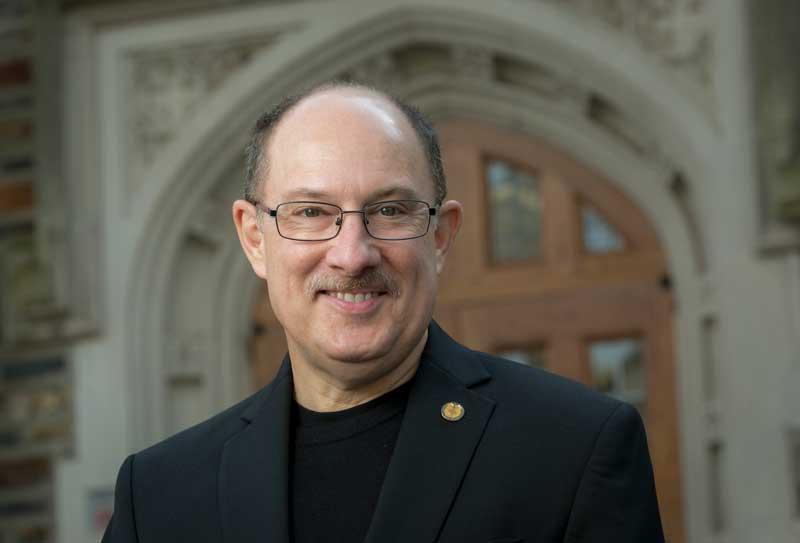
Joseph Heitman, MD, PhD, James B. Duke Professor and chair of the Department of Molecular Genetics and Microbiology, has been elected to the U.S. National Academy of Medicine (NAM).
Election to the Academy is considered one of the highest honors in the fields of health and medicine and recognizes individuals who have demonstrated outstanding professional achievement and commitment to service.
Heitman, who joined Duke in 1992 and became chair of the Department of Molecular Genetics and Microbiology in 2009, studies model and pathogenic fungi to address unsolved problems in biology and medicine. His pioneering research using the model budding yeast Saccharomyces cerevisiae led to the discovery of FKBP12 and TOR as the targets of rapamycin, a drug now widely used in organ transplantation, cancer chemotherapy, and interventional cardiology. Heitman’s research studying the pathogenic fungus Cryptococcus led to the discovery of a previously unknown form of sexual reproduction in the fungus known as unisexual reproduction.
A Burroughs-Wellcome Scholar and HHMI investigator, Heitman is a fellow of the American Academy of Microbiology, the American Society for Clinical Investigation, the Association of American Physicians, the American Association for the Advancement of Science, and the American Academy of Arts and Sciences. He was elected to the National Academy of Sciences in 2021.
“Congratulations to Dr. Heitman on this well-deserved honor,” said Mary E. Klotman, MD, executive vice president for health affairs at Duke University and dean of Duke University School of Medicine. “Election to the National Academy of Medicine is a testament to his exceptional accomplishments and impact as a scientist, a leader, and a mentor.”
Heitman is one of 100 new members elected to NAM this year. New members to the National Academy of Medicine are elected by current members through a process that recognizes individuals who have made major contributions to the advancement of the medical sciences, health care, and public health.
“This class of new members represents the most exceptional researchers and leaders in health and medicine, who have made significant breakthroughs, led the response to major public health challenges, and advanced health equity,” said NAM President Victor J. Dzau. “Their expertise will be necessary to supporting NAM’s work to address the pressing health and scientific challenges we face today. It is my privilege to welcome these esteemed individuals to the National Academy of Medicine.”
Established originally as the Institute of Medicine in 1970 by the National Academy of Sciences, the National Academy of Medicine addresses critical issues in health, science, medicine, and related policy and inspires positive actions across sectors. NAM works alongside the National Academy of Sciences and National Academy of Engineering to provide independent, objective analysis and advice to the nation and conduct other activities to solve complex problems and inform public policy decisions. The National Academies of Sciences, Engineering, and Medicine also encourage education and research, recognize outstanding contributions to knowledge, and increase public understanding of STEMM. With their election, NAM members make a commitment to volunteer their service in National Academies activities.